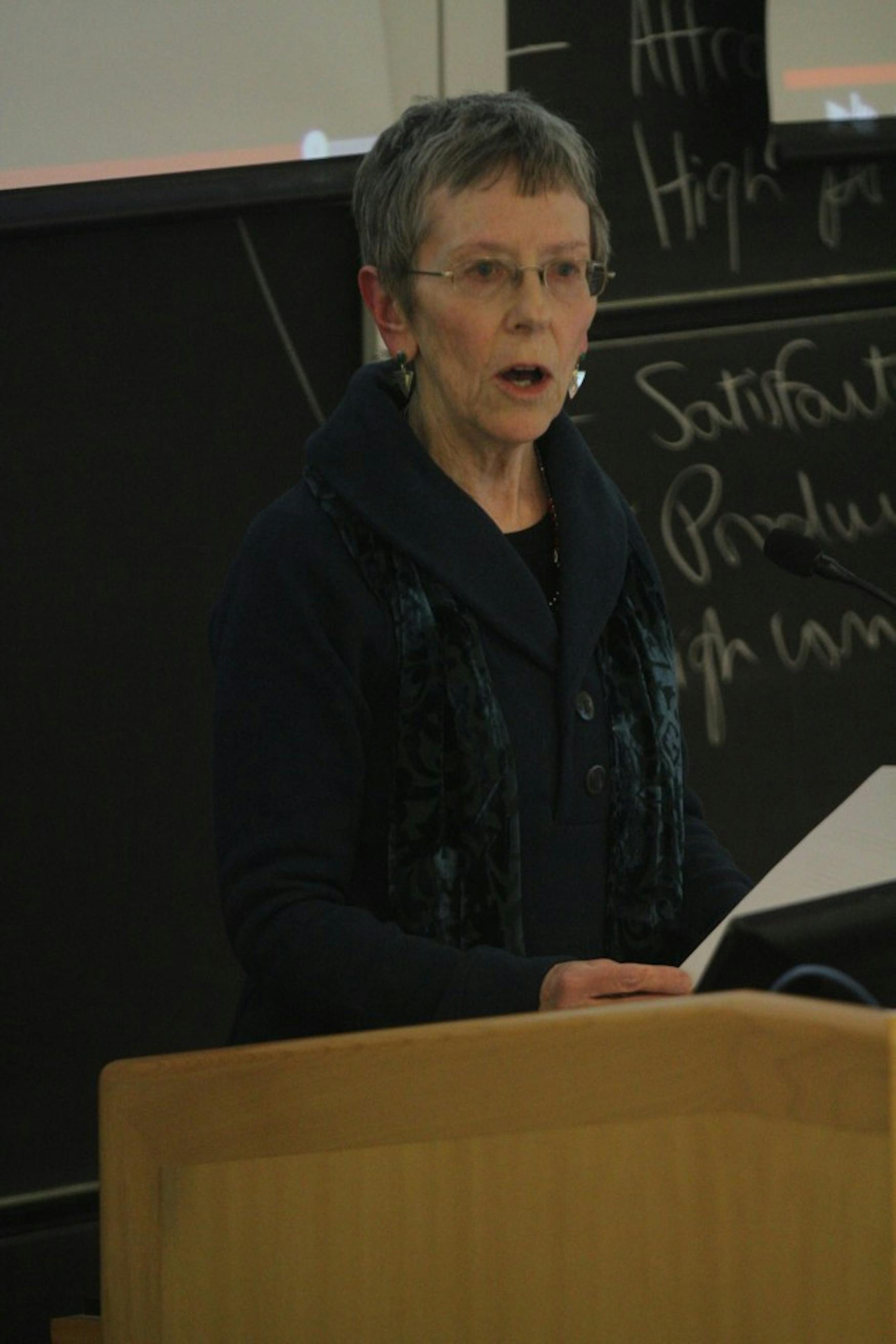Scholar discusses policies that shame the homeless
Donna Haig Friedman Ph.D.’96 spoke about the contentious and “shaming” policies surrounding family homelessness in Massachusetts at the Heller School for Social Policy and Management last Tuesday.
Friedman, who is the director of the Center for Social Policy at the McCormack Graduate School of the University of Massachusetts Boston, began the event by discussing the violence of poverty. “Solidarity allows you to find your intelligence again,” Friedman said.
According to Friedman, in the past 15 years, growing income inequality and changing housing market dynamics have been the two primary contributors to poverty in Massachusetts. Friedman said that while entering the workforce is considered to be the “most viable pathway” out of poverty, many low-income families who are working still do not make enough money.
Friedman said that the rising cost of housing has affected families considerably, stating that 26 percent of all households pay more than 50 percent of their incomes for housing. Nearly 25 percent of Massachusetts’ families do not make enough money to meet their family’s basic needs, and the “majority of people in this situation are ineligible for a range of public income supports”—such as housing, subsidized childcare and food assistance. There has also been a 23 percent cut in programs that support work and an 18 percent cut in housing and homelessness prevention over the past 15 years, according to Friedman. She noted that these also happen to be “the very solutions that can actually enable people to hold on to their housing.”
“A clear consequence of these harsh realities is the unrelenting growth of family homelessness in Massachusetts, with no end in sight, and harsh and shameful eligibility criteria,” Friedman said. She stated that the most shameful piece of policy is the approval of a law in September 2012 by the Massachusetts legislature that requires families to prove they have spent at least one night in a place “not meant for human habitation” in order to successfully get into a shelter. Many families in shelters are headed by a single mother and are disproportionately families of color, she said. Friedman also mentioned that 33 cities have enacted policies that prevent people from giving food to the homeless on the streets.
Friedman went on to discuss the psychological effects of homelessness. “Humiliation isolates,” Friedman said, and those who experience the “humiliation” of poverty have very fragile states of mind. She stated that neuroscience studies show that “the same part of the brain registers both humiliation and physical pain.”
In order to surpass this stigmatization, Friedman said that America must reshape its policies to be “shame-proof.” This includes minimizing the “loser element,” or the idea that some will win and some will lose, in policy design, as well as the “deserving/undeserving” mentality. She also said that America must work on building solidarity across race, class and gender divisions and must hold its policies to “human rights standard” by recognizing that every single individual has the right to live comfortably.
Friedman did list several Massachusetts organizations that are successfully working to help impoverished families, including the “Thrive and Five” initiative in Boston, which targets immigrant families with limited resources. The organization gives much needed resources to families and also gives them a “sense of belonging,” which Friedman says is one of the most important steps towards lifting a family or individual out of poverty.
“We have the opportunity and the obligation to make a difference,” Friedman concluded. “Material hardship is not the worst thing…being treated like nothing, like an object, is worse.”
The event was co-hosted by the Gender Working Group at the Heller School and the Women’s Studies Research Center.




Please note All comments are eligible for publication in The Justice.